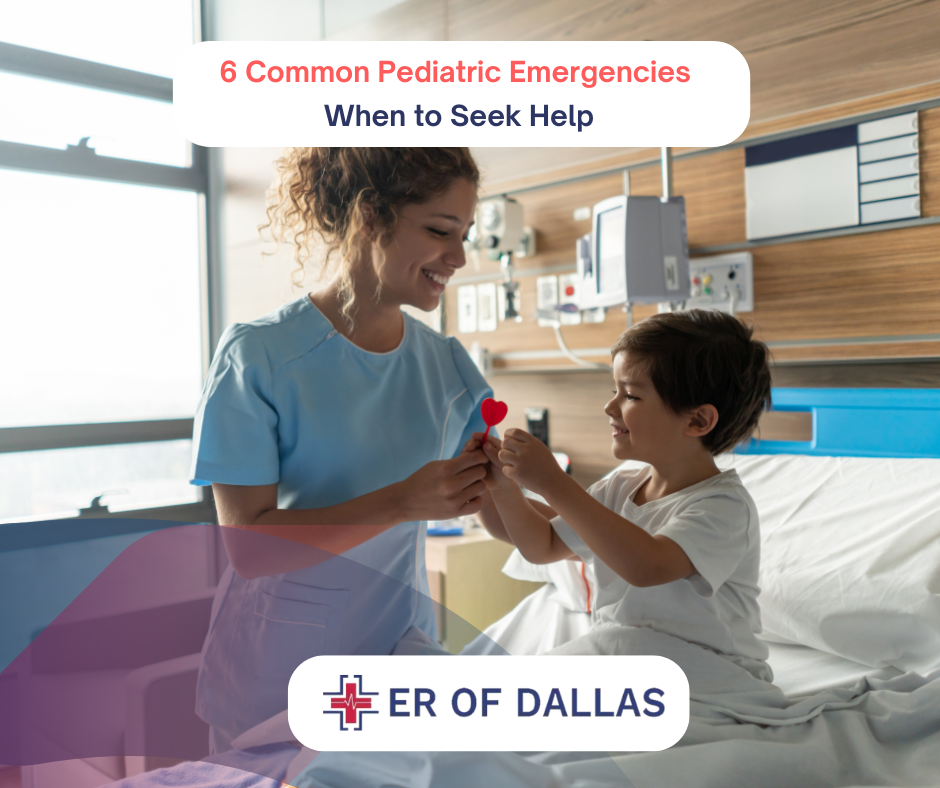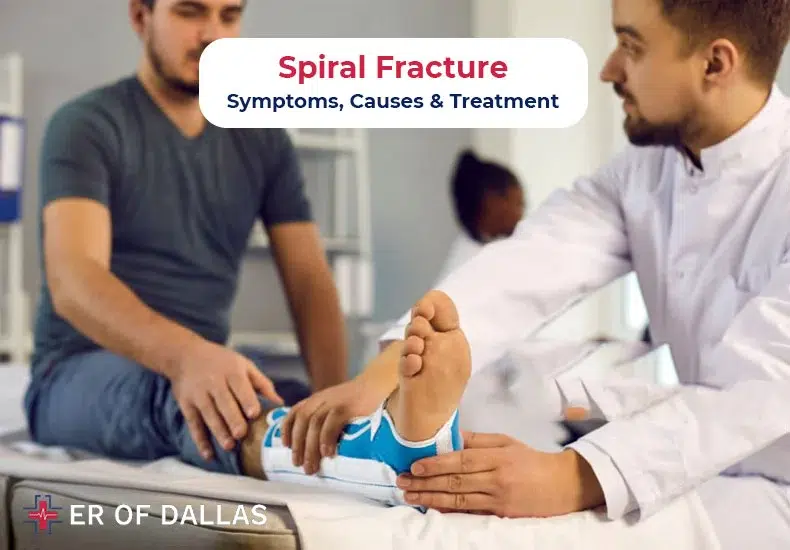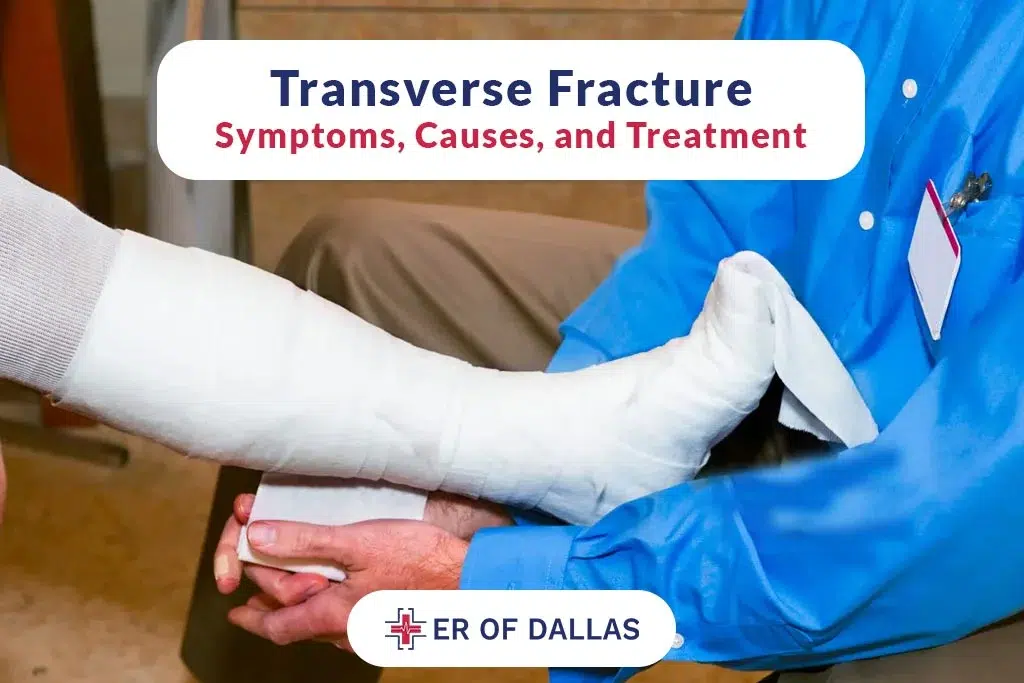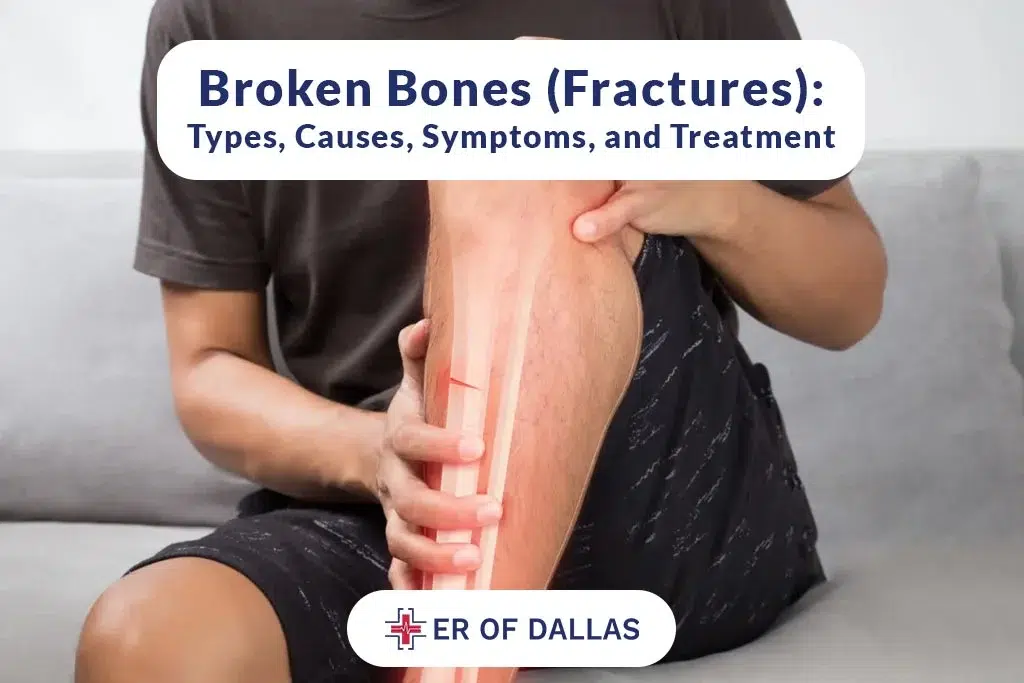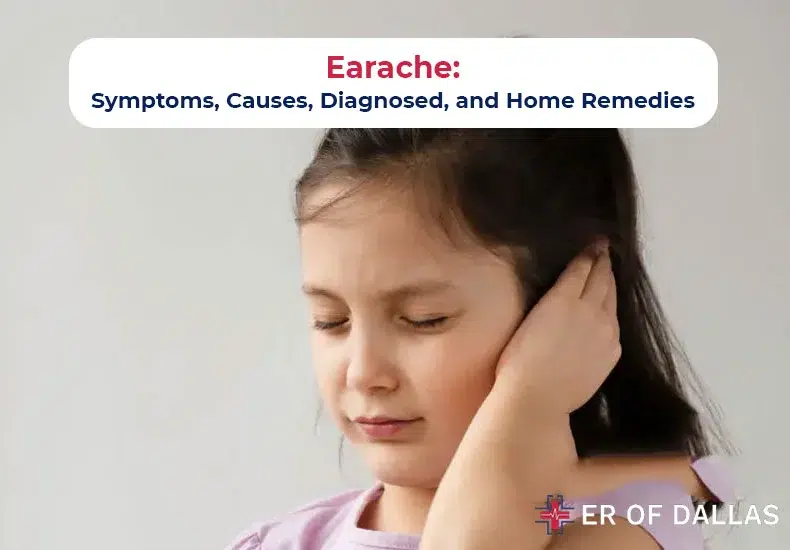What Is Typhoid?

Salmonella Typhi (S. Typhi) is the bacteria that causes typhoid fever. Along with other symptoms, it attacks your small intestines, or gut, and results in a high temperature. Enteric fever is another name for typhoid fever.
Typhoid and paratyphoid fever are frequently discussed together. With milder symptoms than typhoid, paratyphoid fever is comparable. Salmonella Paratyphi (S. Paratyphi) is the cause of it.
It affects various tissues and organs through the bloodstream. Because S. typhi may survive within the host’s cells without being detected by the immune system, the host’s immune system is too weak to fight back.
Physicians identify typhoid by looking for S. typhi in samples of bone marrow, blood, stool, or urine.
Who Does Typhoid Fever Affect?
The majority of typhoid fever cases occur in underdeveloped nations’ rural areas, where there is no access to modern sanitation. Typhoid mostly affects countries in Africa, the Caribbean, Central and South America, and South and Southeast Asia. The countries where tourists are most vulnerable are Bangladesh, India, and Pakistan. Typhoid fever is more common in children than in adults.
How Does Typhoid Spread Long-Term?
Even after recovering from typhoid fever, some people (known as long-term carriers) still have the disease. Typhoid fever can spread for a year or more in the absence of symptoms. After you feel better, it’s crucial to get tested for S. Typhi to make sure you can’t infect anyone else.
What Are The Phases of Typhoid?
Typhoid fever symptoms might appear gradually for four phases. Antibiotic therapy administered early on can prevent you from moving on to subsequent phases.
- Phase 1: Five to fourteen days after coming into contact with S. Typhi, you can begin experiencing the symptoms of typhoid disease. The initial sign is a fever that rises gradually over a few days; this rise is referred to as “stepwise” fever. At this point, the bacteria are entering your bloodstream.
- Phase 2: The bacteria in your Peyer’s patches (a portion of your immune system that detects dangerous invaders) start to increase around the second week of fever. Abdominal pain and other symptoms related to the stomach, such as constipation or diarrhea, will start to occur. “Rose spots” are little pink patches on your skin that resemble rashes.
- Phase 3: The germs might cause serious harm if antibiotics are not used. This usually happens three weeks after the onset of symptoms. Serious side effects like internal bleeding and encephalitis (brain inflammation) happen to certain persons.
- Phase 4: Most people start to heal at stage four. Your high fever starts to subside. Although S. Typhi can survive in your gallbladder without showing symptoms, you could remain infectious even after you recover.
How Common Is Typhoid?
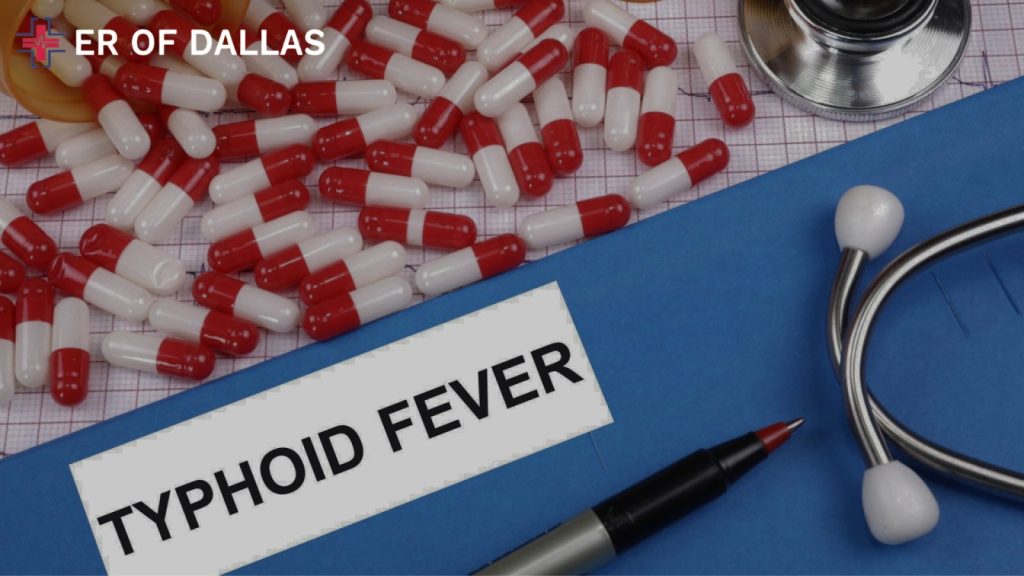
Between 11 million and 21 million people are thought to get typhoid annually worldwide. In the United States, Canada, Japan, Western Europe, and Australia, it is uncommon.
Is Typhoid Contagious?
Typhoid fever is indeed contagious. Even after the acute stage of the illness has passed, the patient may still harbor the bacteria in their intestines. This is referred to as the “carrier stage” and could continue for a long time.
Causes of Typhoid
S. typhi is the bacteria that causes typhoid. Food, beverages, and drinking water infected with diseased feces are the main ways it spreads. If the water is polluted, washing fruits and vegetables can further spread the infection.
Others have typhoid that shows no symptoms at all. Some people carry the bacterium even after their symptoms end. Occasionally, the illness may return.
Until medical tests come back negative, people who test positive for typhoid may not be able to work with youngsters or aged people.
Symptoms of Typhoid
It may take one or two weeks for symptoms to show up following an infection. Among these signs and symptoms are:
- Elevated fever
- Exhaustion
- Fragility
- Constipation
- Stomach ache
- Diarrhea
- Headache
- Inadequate appetite
- Rash
Although they are uncommon, serious side effects can include gastric bleeding or ulcers. Sepsis, a potentially fatal bloodstream infection, may result from this. Severe stomach discomfort, nausea, and vomiting are among the symptoms.
Inform your doctor about any recent international trip you may have taken if you have any of these symptoms.
Diagnose of Typhoid
Typhoid fever will be diagnosed by your healthcare professional based on your symptoms, travel history, and results from laboratory tests. Along with a physical examination, they will listen to your heart and lungs.
You must inform your healthcare practitioner of any recent trip or suspected exposure to typhoid, as they may not know to test for it. Additionally, they will utilize the data to determine the course of treatment.
What Tests Can Be Done to Diagnose Typhoid?
To check for S. Typhi, your healthcare provider will collect samples of tissue or bodily fluids. They may take pictures of you in
- Blood test for typhoid. A tiny tube of blood will be drawn from your arm using a needle by your healthcare professional.
- Stool (poop). You will receive instructions on how to collect a sample as well as a sterile container from your healthcare professional.
- Pee is short for urine. Your healthcare professional can ask you to urinate into a cup.
- Your healthcare professional may use a small razor or scalpel to numb your skin before taking a sample.
- Bone marrow. Your healthcare professional will numb your skin and take a sample from the interior of your bones using a specialized needle. You rarely need to use this test to get a diagnosis.
To check for abnormalities in your lungs, your healthcare practitioner may also take X-rays, which are images of the inside of your body.
Treatment for Typhoid
Antibiotics is used to treat typhoid. Depending on the type of typhoid you have and where you were ill, you may receive different antibiotic treatments because some of the more recent strains of the bacteria are resistant to them. Antibiotics are also used to treat parapyphoid fever.
You may require more treatments if you have issues or are sick. For these therapies, you’ll most likely need to be hospitalized to the hospital.
Medication resistance can occasionally arise in bacteria such as S. Typhi. Antibiotic resistance indicates that antibiotics are no longer effective in destroying them.
While many cases of typhoid cannot be eradicated by the antibiotics we originally employed, other medications can still treat them. Some, like XDR typhoid, are so resistant to drugs that very few are still effective against them. This is one of the main arguments in favor of vaccination against typhoid.
Health professionals at the ER of Dallas fear that if the current medications stop working, we might not be able to treat typhoid. Based on the findings of strain testing, you will be treated with an antibiotic that targets the specific type of typhoid you have.
Can Typhoid Be Prevented? Tips To Avoid Typhoid
It is helpful to heed these preventative recommendations when visiting nations with higher typhoid incidence rates:
Keep An Eye On Your Diet.
- Eat only cooked produce (after washing your hands) if you can peel it yourself.
- Steer clear of street vendors’ food.
- Eat no fish or meat that is rare or raw. When serving, food should be fully cooked and still warm.
- Consume only hard-cooked eggs and pasteurized dairy products.
- Steer clear of freshly made salad dressings and condiments.
- Eat nothing wild game.
Maintain Proper Hygiene.
- Hand sanitizer with at least 60% alcohol should be used instead of soap and water when washing your hands frequently, especially after using the restroom and before handling food.
- Unless you’ve just washed your hands, avoid touching your face.
- Steer clear of sick people’s direct contact.
- When you’re sick, stay away from other people, wash your hands frequently, and avoid handling or preparing food.
Take Caution When Consuming Alcohol.
- Avoid drinking from wells or the faucet.
- If you’re not positive that bottled or boiling water is used to make them stay away from ice cubes, popsicles, and fountain drinks.
- Purchase bottled beverages whenever feasible (make sure the bottles are securely sealed; carbonated water is safer than noncarbonated water).
- It is recommended to boil unbottled water for one minute before consumption.
- Hot tea, hot coffee, and pasteurized milk are safe to consume.
What is The Typhus Vs Typhoid?
Despite having similar names, typhus and typhoid are distinct diseases brought on by different bacteria. Doctors used to believe that the two illnesses were the same because of how similar the symptoms were. Even though we now know they are distinct illnesses, the similar names persisted, adding to the confusion.
What is The Difference Between Malaria And Typhoid?
While typhoid and malaria are caused by very different organisms (a protozoan causes malaria, whereas a Gram-negative bacillus does) and are spread through different routes (eating contaminated food or water or being bitten by an insect vector), they share similar epidemiology and symptomatology.
What About A Vaccine for Typhoid
The typhoid vaccine is not required for the majority of people who are in good general health. However, your physician might advise one if you’re:
- Someone who harbors the typhoid bacteria without showing any symptoms
- In intimate proximity to a carrier
- Visiting a nation where typhoid fever is prevalent
- A worker in a laboratory who might be exposed to S. typhi
There are two types of the typhoid vaccine, which has a 50–80% effectiveness rate:
- Vaccine against typhoid inactivated. This vaccination requires a single injection. It takes roughly two weeks to work, and children under the age of two should not do it. A booster dose is permitted every two years.
- Typhoid vaccine in live form. Children under six should not receive this vaccination. This oral vaccine is administered in four doses spaced two days apart. It takes a week or longer to start working after the last dosage. A booster shot is permitted every five years.
Where To Get Typhoid Vaccine?
In Dallas, people can look into other healthcare options besides the ER to receive the typhoid vaccine. Regular vaccinations are provided by primary care physicians (PCPs), who can also be consulted by making an appointment. International travelers can receive customized advice from specialized travel clinics in the city, along with necessary vaccinations like the typhoid vaccine. The typhoid vaccine may also be given by county health departments and certain pharmacies, especially those that offer travel health services. Although they are less common for travel vaccinations, urgent care facilities may still be worth a look. Furthermore, there are specialists in travel medicine who concentrate on providing complete pre-travel medical care, including vaccinations. It’s best to check insurance coverage and costs in advance, as some vaccines require several doses.
To receive individualized advice regarding where to obtain the typhoid vaccine in Dallas, get in touch with medical professionals, regional health offices, or travel agencies. Use the Dallas Emergency Room (ER) without hesitation if you need assistance right away.
What Is The Typhoid Vaccine Cost?
You might need to get vaccinated against typhoid before visiting a country where the disease is prevalent. Amino discovered that a typhoid vaccine has a $200 median network rate.
Typhoid Vaccine Side Effect
You can get more information from your healthcare provider. Inactivated typhoid vaccine side effects include shot pain, injection site redness or swelling, fever, headache, and general discomfort. Following a live typhoid vaccination, symptoms such as fever, headache, stomach pain, diarrhea, nausea, and vomiting may occur.
Does Insurance Cover The Typhoid Vaccine?
Typhoid vaccines and other travel vaccinations are not covered by the majority of health insurance plans, including Medicare. You’ll probably have to cover the entire cost of the vaccination out of your pocket, though you can always check with your insurance provider.
Home Remedies For Typhoid
Typhoid fever, a potentially fatal illness characterized by a high fever, weakness, and digestive issues, is caused by the Salmonella Typhi bacterium. When typhoid is diagnosed, medical attention is imperative; however, some natural remedies can support traditional medical care and lessen symptoms.
These 10 efficient typhoid home treatments can reduce symptoms and hasten recovery. However, for an accurate diagnosis and treatment plan, always speak with a medical professional.
- Remain Hydrated:
Typhoid fever-related sweating and gastrointestinal symptoms make dehydration the main cause of concern. To keep your hydration levels stable, drink lots of liquids, such as water, clear broths, and oral rehydration solutions. Drink these liquids often during the day.
- Lemon Water:
Packed full of vitamin C, lemons aid in digestion and strengthen immunity. To help your digestive system, squeeze half a lemon into a glass of warm water and drink it first thing in the morning.
- Ginger tea:
Ginger’s inherent antibacterial and anti-inflammatory qualities can help relieve gastrointestinal pain. Boil a few fresh ginger slices in water to make ginger tea. Drink this tea gradually to reduce nausea and abdominal pain.
- Honey and cinnamon:
While cinnamon can help lower fever, honey naturally possesses antibacterial qualities. Mix a spoonful of honey with a teaspoon of cinnamon powder, then swallow for a daily immune-boosting boost.
- Pomegranate juice:
Packed with antioxidants, pomegranates can help you stay healthier overall while you have typhoid. Drink a glass of fresh pomegranate juice every day to boost your immunity.
- Fenugreek Seeds:
Fenugreek seeds have a cooling effect that helps reduce discomfort and fever. Take a teaspoon of fenugreek seeds and soak them in water for the night. The following morning, drink the water.
- Apple Cider Vinegar:
Apple cider vinegar can help lower fever and maintain the pH balance of the body. Pour one teaspoon of apple cider vinegar into a glass of water. Several times a day, sip it.
- Mint Leaves:
Cooling in nature, mint leaves can ease fever and upset stomachs. Boil a few fresh mint leaves in water to make mint tea, and drink it all day long.
- Buttermilk:
Rich in probiotics, buttermilk helps calm upset stomachs. To help with digestion, stir up a cup of buttermilk with a small pinch of black salt and drink several times a day.
- Turmeric Milk:
It’s commonly known that turmeric can lower inflammation. To lower fever and speed up the healing process, combine one teaspoon of turmeric powder with a glass of warm milk before going to bed.
Signs Of Recovery From Typhoid
Here are some indicators that typhoid fever is improving:
- Regained hunger
- Nobody experiences pains, such as headaches or stomachaches.
- Normal body temperature, meaning there is no fever
- Reduced weariness
- Decreased diarrhea
- No congestion in the chest
Conclusion
For typhoid fever to be effectively treated, early diagnosis is essential. Typhoid can only be cured by antibiotics. If discovered too late, it may be fatal. If you see symptoms of typhoid fever developing in your body, get tested for it.

